CATS
20 Subtle Signs Your Cat Secretly Despises You
Published
4 months agoon
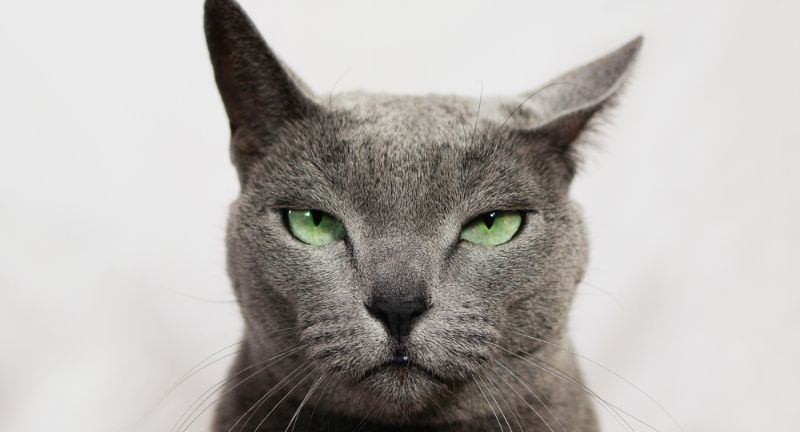
Shutterstock
Cats are known for their mysterious and independent nature, often keeping us guessing about their true feelings. While many cats show affection in subtle ways, others can exhibit behaviors that suggest something more complicated. You might think your cat loves you unconditionally, but feline behavior isn’t always what it seems. From ignoring your calls to giving you the silent stare, there are clues that your cat might be less than thrilled with you. Discover these surprising signs that could reveal whether your cat is secretly harboring some hidden animosity.
The Silent Stare
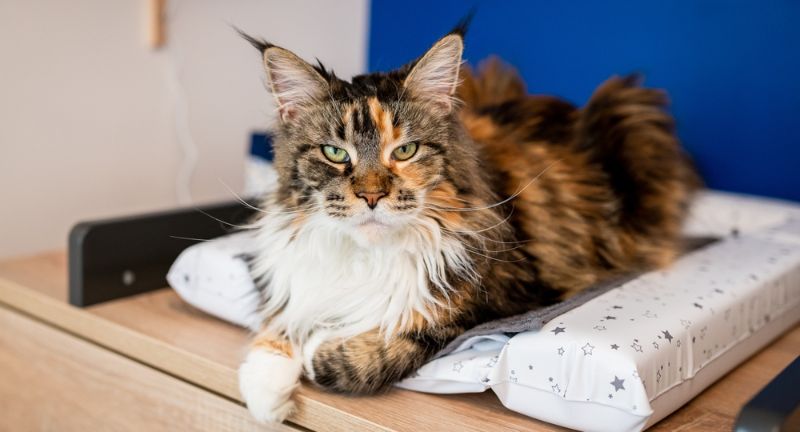
Shutterstock
A long, unblinking stare from your cat across the room isn’t just curiosity—it may be a calculated evaluation of your worthiness. Some cats will fix you with an intense gaze, and you can feel the weight of their judgment in those eyes. It’s as if they’re questioning your every action, assessing whether you meet their lofty standards. If you catch them staring at you without flinching, you might wonder if they’re silently contemplating their displeasure.
Ignoring You (Even at Mealtime)
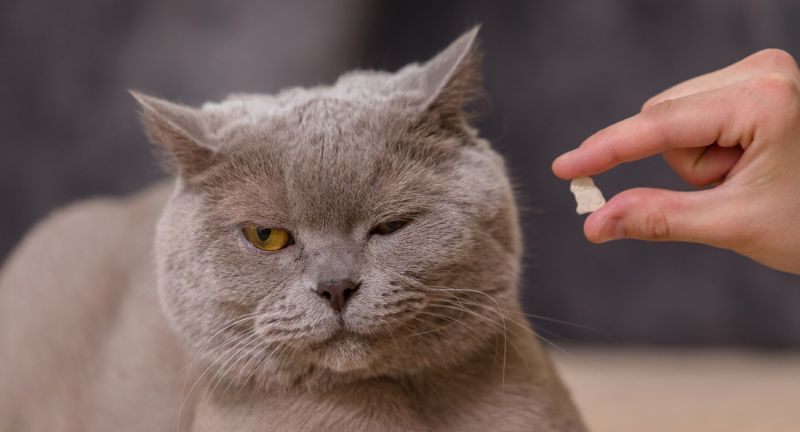
Shutterstock
Cats are notorious for ignoring people, but if yours walks away when you call or prepare their meal, it might be more than typical aloofness. Some cats have mastered the art of disdain, and avoiding you—even when food is involved—could be their way of showing they’re not impressed. While most cats eagerly anticipate mealtime, a cat that shows disinterest might be saying, “I’ll eat, but don’t think I’m happy about it.” This dismissive behavior might indicate they’re just tolerating you for sustenance.
The ‘Accidental’ Paw Swipe

Shutterstock
A random paw swipe from your cat might seem harmless, but if it happens frequently, it could indicate annoyance. Cats usually swat with claws retracted if they’re being playful, so if the claws are out, your feline friend may be conveying some irritation. They might pretend it’s an accident, but each swipe could be a subtle protest against something you’re doing. Keep an eye out for these “accidental” swats—they’re often a less-than-subtle sign of displeasure.
No Belly Exposure

Shutterstock
Cats show trust by exposing their bellies, so if your feline friend never rolls over to show that soft underbelly, it may be a sign of guardedness. A cat that keeps its stomach out of view might be signaling that it doesn’t fully trust you. This behavior suggests a certain level of wariness and perhaps even a bit of resentment. A cat hiding its belly is likely to be saying, “I don’t feel safe or comfortable enough around you just yet.”
Unprovoked Biting
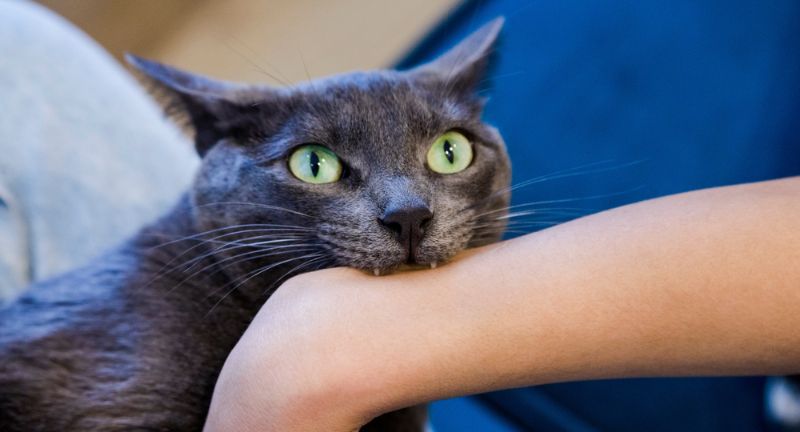
Shutterstock
Gentle nibbles are often affectionate, but when those bites become harder and seemingly unprovoked, it might be more of a sign of irritation. Cats that bite out of the blue can be conveying displeasure, as if to say, “I’ve had enough of your company.” It’s one thing to playfully nip, but if they’re constantly chomping down, they may be losing patience with you. Be cautious—persistent biting is often a sign that your presence is more irritating than endearing to them.
Knocking Over Objects—On Purpose
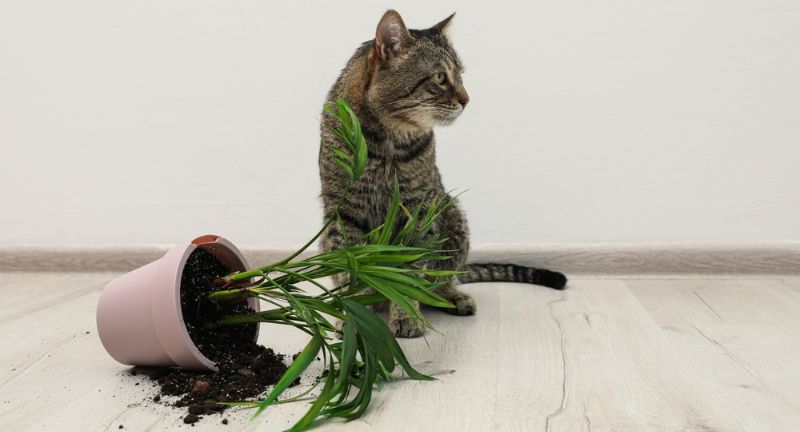
Shutterstock
Cats have a tendency to knock things over, but if they’re doing it while looking directly at you, they may be making a statement. This purposeful push often indicates that they know they’re annoying you and relish in it. Some cats seem to get a thrill out of asserting their dominance over your belongings. If they make eye contact as they nudge an object off a table, it’s a sign of both amusement and irritation with your rules.
Refusing to Use Their Litter Box
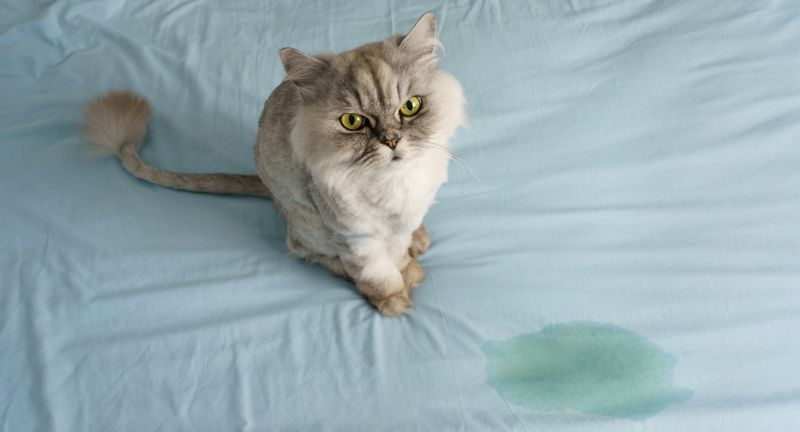
Shutterstock
When cats refuse to use their litter box, it’s not always a health issue—it can also be a form of protest. If they’re suddenly marking their territory on your favorite items, it may be a response to something they’re unhappy with. This territorial behavior could indicate that they’re feeling overlooked or disrespected. A litter box boycott is their way of communicating, “You’ve crossed a line, and I’m not pleased.”
Headbutting With Force
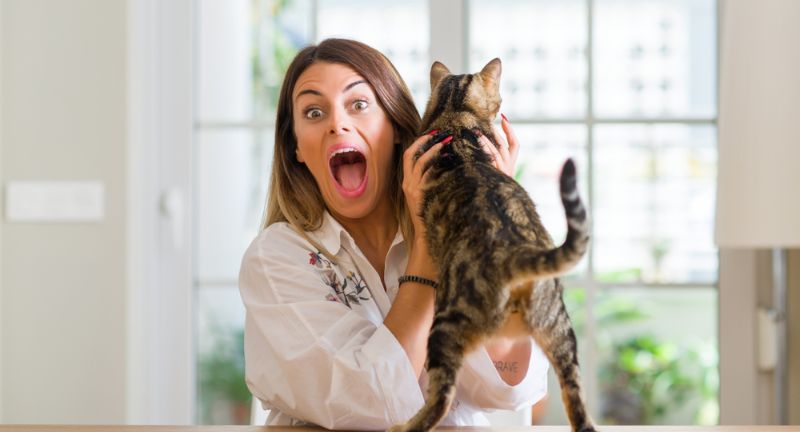
Shutterstock
While gentle headbutts are affectionate, forceful ones can indicate a different message—especially if they’re paired with a quick exit. Cats may headbutt aggressively to mark you with a reminder of their scent, but a rough push could mean they’re in no mood for you. The force behind it says, “I’m in control, and I don’t need you in my way.” If you notice this behavior, it might be time to give them some space.
Staring at the Door When You’re Home
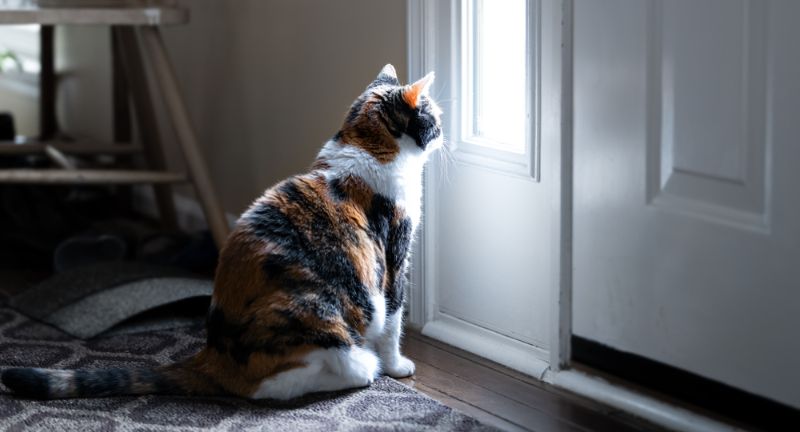
Shutterstock
If your cat spends a lot of time staring longingly at the door while you’re home, it could indicate a desire for freedom. This constant yearning for escape might suggest that they feel confined by your presence. Cats who regularly gaze at the exit may be expressing their frustration with being indoors with you. It’s almost as if they’re saying, “When are you going to give me some space?”
Twitching Tail (When Near You)
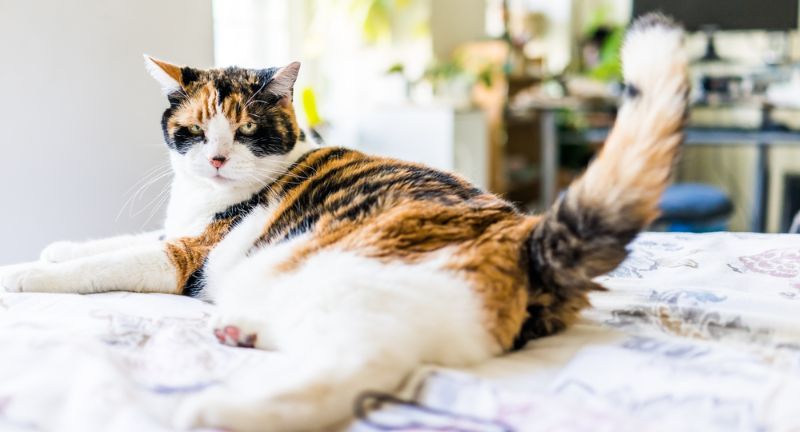
Shutterstock
Cats communicate through body language, and a twitching tail is usually a sign of agitation. If your cat’s tail is flicking quickly when you’re around, it may mean they’re frustrated by your presence. A cat’s tail is often a giveaway of their mood, and this subtle yet consistent movement could be a warning. Be mindful of these signs—they’re usually an early signal to step back.
Leaving the Room When You Enter
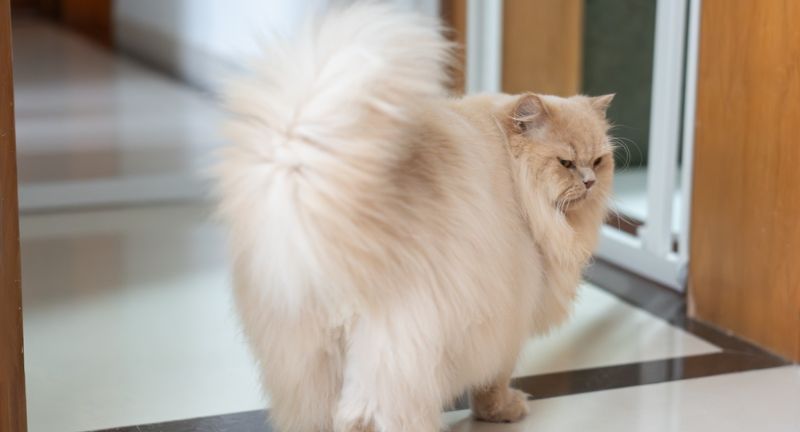
Shutterstock
A cat that immediately leaves a room when you enter could be giving you the cold shoulder. This clear avoidance tactic shows they’d rather not share space with you at that moment. It’s a quiet but powerful signal of preference, indicating they don’t want your company. Cats are skilled at social distancing, and this is their way of saying, “Not right now, thanks.”
Refusal to Make Eye Contact
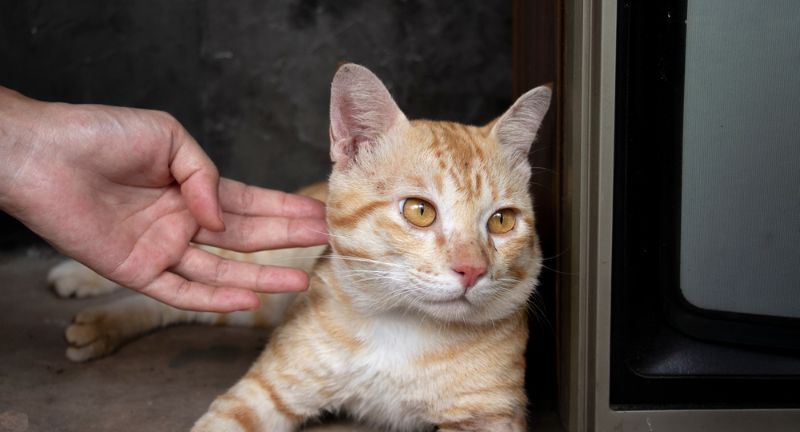
Shutterstock
Cats that refuse to meet your gaze may be actively ignoring you. This behavior could be a sign that they don’t feel inclined to interact or connect at that moment. When a cat avoids eye contact, it’s often a method of self-imposed detachment. It’s their subtle way of saying, “I see you, but I’m not interested in engaging right now.”
Sudden Excessive Grooming
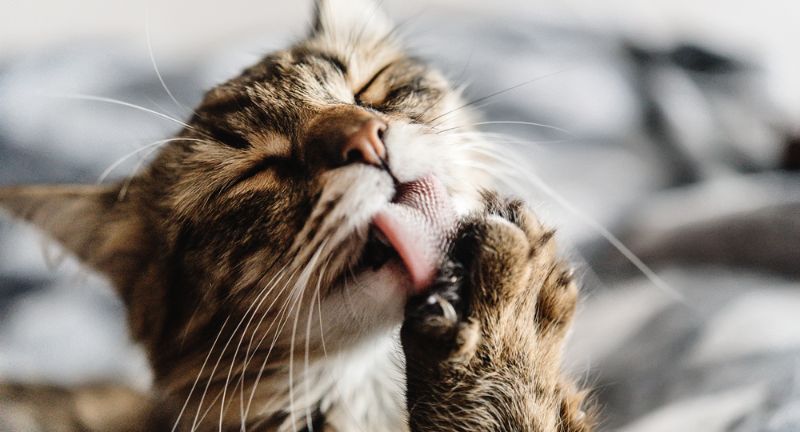
Shutterstock
If your cat starts grooming excessively when you’re nearby, it could be a self-soothing mechanism in response to stress. Cats groom to calm themselves, so if they’re doing it often around you, they might be feeling uncomfortable. Excessive grooming can sometimes be a way for cats to avoid interaction. By focusing on grooming, they’re essentially choosing themselves over your company.
Tail Positioned Down or Tucked
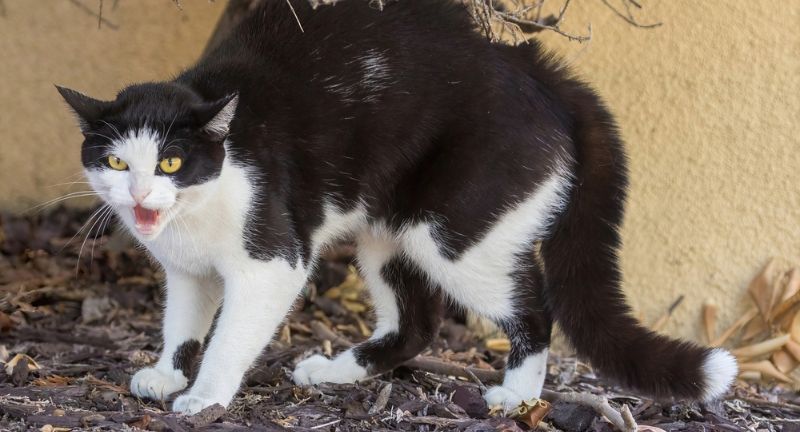
Shutterstock
A cat’s tail is a mood barometer, and a lowered or tucked tail often indicates insecurity or discomfort. If your cat consistently lowers its tail around you, it might be showing a lack of trust or comfort. This subtle body language is worth noting, as it suggests they feel cautious in your presence. It’s a quiet but clear indicator that they’re not entirely relaxed around you.
Hiding When You’re Near

Shutterstock
If your cat often finds a hiding spot when you’re nearby, they may be trying to avoid you altogether. Cats hide when they’re scared or uncomfortable, so if they’re doing this around you, they may be experiencing some stress. This behavior is a strong indication that they’d prefer distance. Rather than seeking your company, they’re choosing the safety of solitude.
Turning Their Back on You
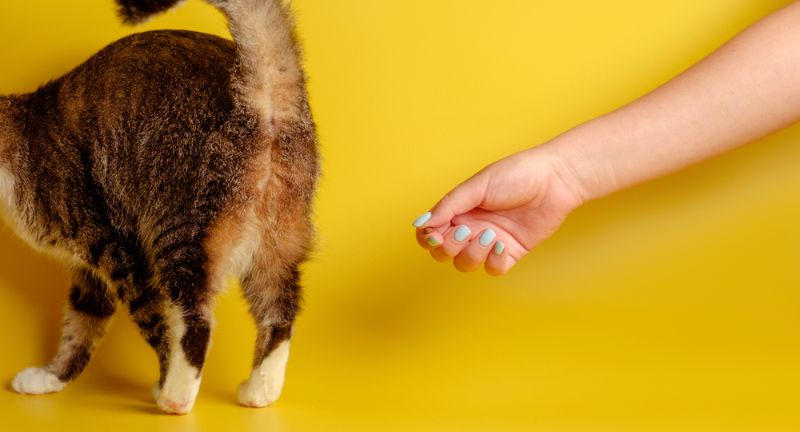
Shutterstock
A cat that constantly turns its back on you might be sending a message of indifference. This cold-shoulder behavior is often a sign they’re not invested in interacting with you. Cats that face away from you are signaling their lack of interest in bonding. In the feline world, turning their back on you can be an intentional gesture of subtle rejection.
Refusal to Purr

Shutterstock
Purring is a common sign of contentment, so if your cat no longer purrs when you’re around, it might mean they’re less happy in your presence. Cats purr as a response to comfort, so a lack of purring could indicate dissatisfaction. This sudden absence of a comforting sound might be their way of showing detachment. It’s a subtle but telling shift in their behavior toward you.
Vocalizing Excessively When You Approach
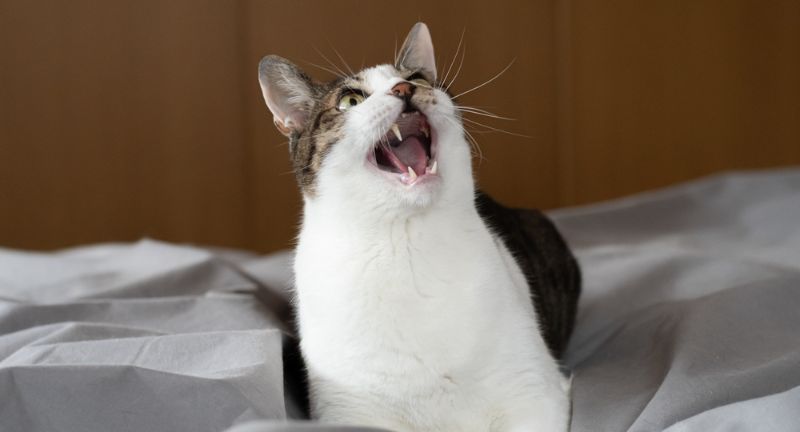
Shutterstock
When cats meow loudly as you approach, it’s often an expression of frustration or protest. This vocal outburst may be their way of saying they’re not thrilled to see you at that moment. Excessive meowing in response to your presence is often a complaint rather than a greeting. If their meows sound sharp or irritated, it’s likely a sign they’d prefer some distance.
Clawing Your Belongings (but Ignoring Their Scratching Post)
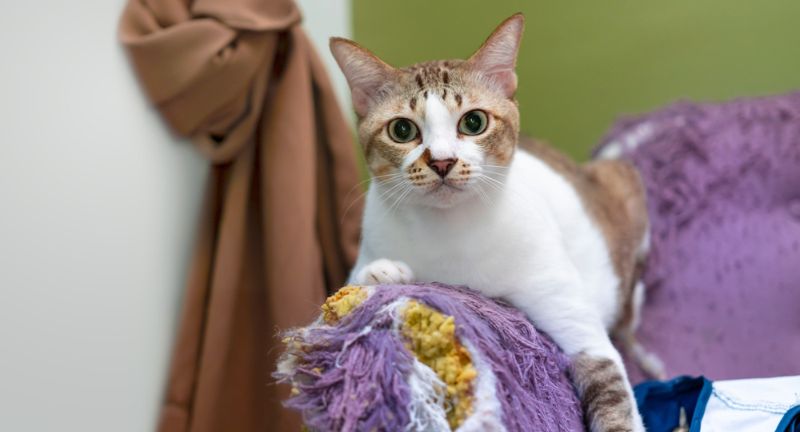
Shutterstock
Cats scratching your belongings instead of their post might be trying to mark their territory in places you use. This behavior can be a subtle act of rebellion, especially if it’s directed at items you frequently touch. By choosing your things over their own scratching post, they’re showing disregard for boundaries you’ve set. This defiant act can be a way of asserting themselves over your rules.
Ignoring Affectionate Gestures
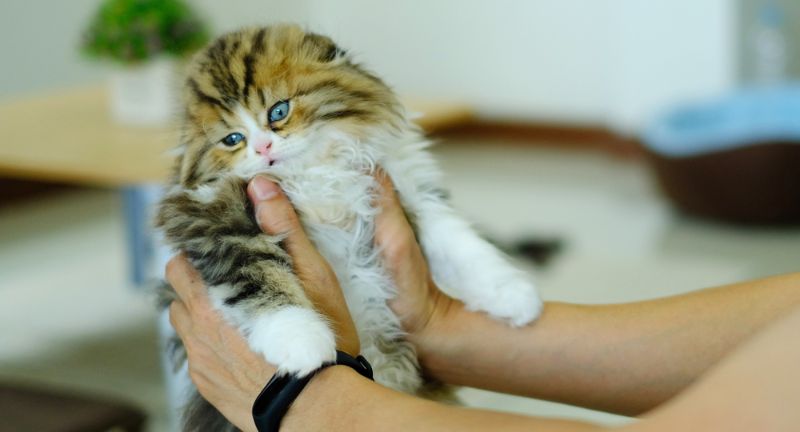
Shutterstock
If your cat used to enjoy being petted or cuddled but now shuns it, they may be less inclined to bond with you. This rejection of affection suggests they’d prefer space over closeness. By ignoring gestures of love, they’re communicating that they’re not in the mood to engage. This sudden withdrawal is a clear sign that they’re putting some emotional distance between you and them.
Conclusion

Shutterstock
Cats can be complex creatures, and understanding their behavior takes patience and observation. While some of these signs may seem startling, remember that every cat has its own personality and ways of expressing itself. Your cat may not truly despise you, but it’s essential to recognize when they’re feeling stressed or annoyed. By respecting their boundaries and providing a comforting environment, you can work toward a healthier, happier relationship. After all, decoding your cat’s quirks can bring you closer to understanding what makes them unique.
More Amazing Animals+
-


20 Animals At Risk Of Extinction That Need Our Help
-


28 Animals That Use Camouflage For Protection
-


27 Most Intelligent Animals And How They Problem Solve
-


25 Mythical And Misunderstood Animals
-


15 Of The Cutest Cat Breeds
-


27 Animals That Live In The Most Extreme Conditions
-


30 Most Interesting Mutualistic Relationships In Nature
-


26 Animals That Have The Cutest Babies
-


35 Things Your Cat Does To Express That It Loves…
-


25 Fascinating Facts About The Cheetah
-


27 Animals That Mate For Life
-


27 Animals That Look Like They Could Be A Cartoon…
